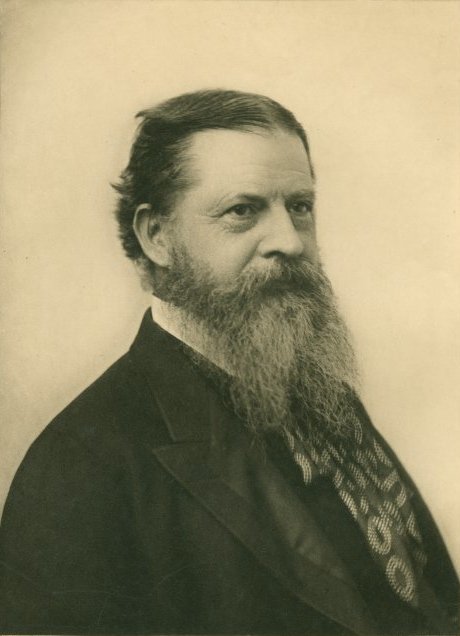Charles Sanders Peirce frasi celebri
“L'idea non appartiene all'anima; è l'anima che appartiene all'idea.”
da Collected Papers, Vol. I, par. 216, 1931-1958
“Non lasciateci far finta di dubitare nella filosofia ciò di cui non dubitiamo nei nostri cuori.”
da Collected Papers, Vol. V, par. 265
da Collected Papers, Vol. V, par. 211
“Tutte le evoluzioni che conosciamo vanno dal vago per arrivare al definito.”
da Collected Papers, Vol. VI, par. 191
Charles Sanders Peirce Frasi e Citazioni
Charles Sanders Peirce: Frasi in inglese
The Law of Mind (1892)
Lecture II : The Universal Categories, § 2 : Struggle, CP 5.45
Pragmatism and Pragmaticism (1903)
The Law of Mind (1892)
Letter to Victoria (23 December 1908)
The Law of Mind (1892)
Letter to Victoria, Lady Welby (1908) SS 80-81
“The definition of definition is at bottom just what the maxim of pragmatism expresses.”
Letter to William James (8 January 1909)
The Law of Mind (1892)
“The entire universe is perfused with signs, if it is not composed exclusively of signs.”
Quoted in Essays in Zoosemiotics (1990) by Thomas A. Sebeok
The Architecture of Theories (1891)
Origine: A Neglected Argument for the Reality of God (1908), V
“Let us not pretend to doubt in philosophy what we do not doubt in our hearts.”
Vol. V, par. 265
Collected Papers (1931-1958)
The Law of Mind (1892)
The Law of Mind (1892)
Lecture II : The Universal Categories, § 1 : Presentness, CP 5.44
Pragmatism and Pragmaticism (1903)
The final sentence here is an expression of what became known as the Pragmatic maxim, first published in "Illustrations of the Logic of Science" in Popular Science Monthly, Vol. 12 (January 1878), p. 286
The Law of Mind (1892)
"How to make our ideas clear,” Popular Science Monthly, Vol. 12 (January 1878)
Lecture II : The Universal Categories, §3. Laws: Nominalism, CP 5.62
Pragmatism and Pragmaticism (1903)
Vol. V, par. 438
Collected Papers (1931-1958)
The Law of Mind (1892)
“By an object, I mean anything that we can think, i. e. anything we can talk about.”
"Reflections on Real and Unreal Objects", Undated, MS 966
Letter to William James (16 March 1903), published in The thought and character of William James, as revealed in unpublished correspondence and notes (1935) by Ralph Barton Perry, Vol. 2, p. 427
The Law of Mind (1892)
